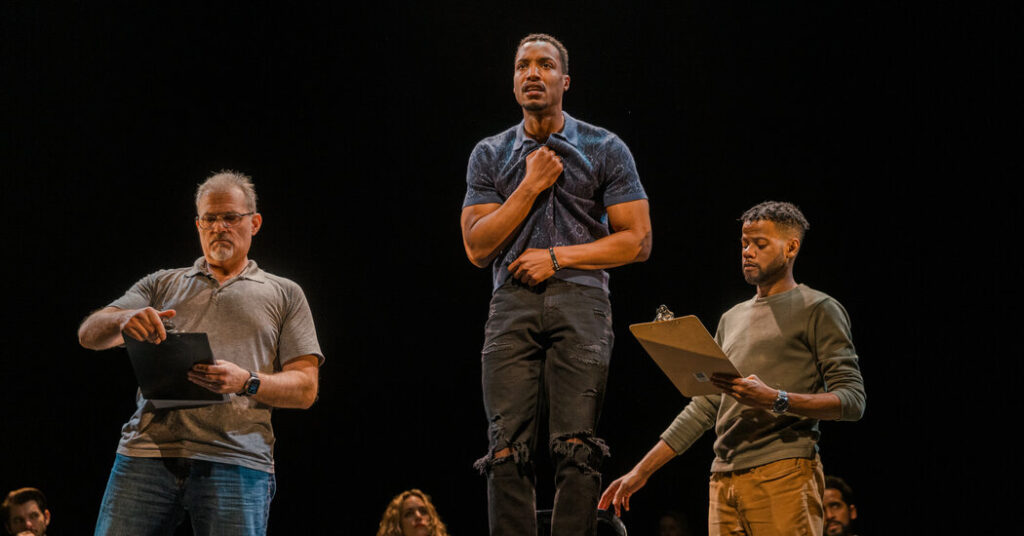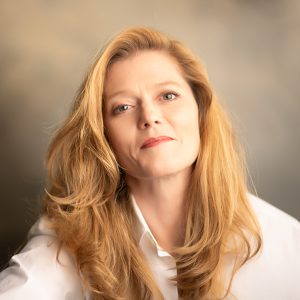‘Blind Injustice’ Opera Spotlights Wrongful Imprisonment

Near the end of “Blind Injustice,” an opera about six people who were wrongfully convicted of crimes and later freed, the exonerees reflect on the time they have spent behind bars.
“What makes a person strong enough to endure injustice?” they sing. “What makes a person free?”
Questions of prejudice, guilt and resilience run throughout “Blind Injustice,” composed by Scott Davenport Richards to a libretto by David Cote, which has its East Coast premiere on Friday at Peak Performances at Montclair State University.
The work, which was commissioned by Cincinnati Opera and premiered there in 2019, explores the effects of wrongful convictions on the prisoners and their families, and the help to overturn their convictions that they received from the Ohio Innocence Project, a nonprofit organization at the University of Cincinnati College of Law.
One man who was sent to death row describes spending 39 years in prison after being wrongfully convicted of murder. A bus driver falsely accused of sexual abuse describes the pain of being separated from her four children. “Oh Lord, protect them!” she sings. “Oh, God! Deliver me!”
And a mother of a young man accused of murder pleads for his release. “Smash bricks into dust!” she sings. “Bust it! Bust it! Bust it! Bust this goddamned prison down!”
“Blind Injustice,” written for a cast of 12 singers, packs the details of the prisoners’ lives and legal cases into a 90-minute show. The opera is described as a work of fiction, though it is based largely on true stories.
“Blind Injustice” offers a spirited call for reforms to the American criminal justice system, which is portrayed as callous, capricious and unrelenting. It is “an opera about stories a society tells itself to justify routine dehumanization of its most vulnerable citizens,” the creative team says in a program note.
Richards, whose score draws on jazz, funk, blues and hip-hop, said the scale of the music and drama were meant to match the importance of the issue.
“We have people sitting in prison in horrible conditions who have done nothing and don’t deserve it,” he said after a recent rehearsal. “We should be jumping up and down and yelling as loud as we can. And we have some singers who are jumping up and singing as loud as they can.”
The opera got its start in 2017, when the Ohio Innocence Project hosted a happy hour in Cincinnati with the Young Professionals Choral Collective, a performing arts group. Afterward, KellyAnn Nelson, the collective’s founding artistic director, contacted Cincinnati Opera about finding a way to highlight the work of the Ohio Innocence Project, which has helped free 42 people since its founding in 2003.
Cote, Richards and Robin Guarino, a stage director and dramaturg, were eventually tapped to create a full-length opera. They shaped it with the help of the book “Blind Injustice,” by the Ohio Innocence Project’s co-founder and director, Mark A. Godsey, a professor at the University of Cincinnati College of Law. They took some liberties, including inventing the character of Alesha, a law student working with the innocence project, who serves as a narrator.
Guarino, with the help of Godsey, interviewed the exonerees with Cote, and recalled being struck by their generosity and grace in the face of injustice. One man, Laurese Glover, who was wrongfully convicted of murder, told them about the despair he felt while being held in isolation in a room he called “the hole.” Another, Clarence Elkins, described collecting DNA evidence from a fellow prisoner’s cigarette butt to help clear his name. The creative team incorporated quotes and descriptions from the interviews into the opera; about 40 percent of the libretto is verbatim.
“We had these people who had had so much taken away from them,” Guarino said. “We were just trying to give back by telling their stories.”
A central challenge, Cote said, was giving enough attention to each character’s account. “Any one of these cases,” he said, “would have been a full-length opera.”
In Montclair, “Blind Injustice” is being presented in a more abstract production than the premiere. The main characters inhabit cells marked by yellow tape. They cope by painting or praying, and a 27-member chorus helps amplify their accounts.
Ted Sperling, who is conducting the show’s 12-member orchestra, said that the material could sometimes be overwhelming.
“I found myself having to keep it together today,” he said after a recent rehearsal. “There’s just a pause — I want to take to let something land, but if I let it land too much, then I can barely go on myself.”
“Blind Injustice” has grown more relevant since its premiere, cast members said, especially after the police killing of George Floyd in 2020 prompted a nationwide conversation about social inequities and discrimination.
“It can speak even larger volumes now that the conversation isn’t so taboo,” said the baritone Eric Shane Heatley, a member of the original cast, who sings the role of Rickey Jackson, the man who spent 39 years in prison.
Heatley has gotten to know Jackson since the premiere, and he said that he was struck by Jackson’s calm, as well as how he had tried to move beyond the trauma of his experience.
“He has definitely shown me that there is work to do,” he said, “but also, there is hope.”
Jackson will be in attendance in Montclair this week, as will another exoneree: Nancy Smith, the bus driver. They will take part in a conversation with Godsey following both performances.
Smith, who spent more than 14 years in prison, said that it could still be difficult for her to watch the opera because it reminded her of a dark chapter in her life. But, she said, the work had also helped her heal.
“The first time I saw it,” she said, “I was brought to tears because I thought, ‘Somebody actually cares enough to take my story and put it out here for everyone and anyone who cares to hear it.’”
Smith hopes that audience members will come away with determination to eradicate bias in the criminal justice system.
“I hope they say, ‘Oh my God, innocent people really do go to prison,’” she said. “I hope they see that this happens. This is serious. This really is the truth.”





